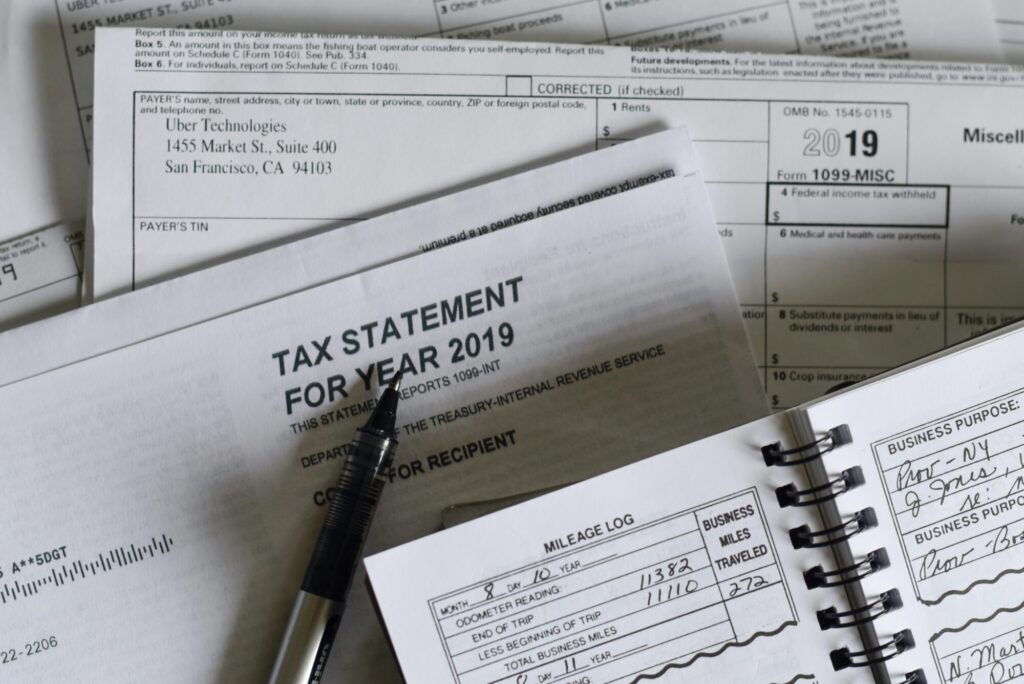On August 8, 2020, President Trump signed a presidential memorandum, allowing employers to defer deducting payroll taxes from employee paychecks from September 1, 2020 through December 31, 2020. The memorandum offered little guidance beyond the fact that it is only eligible for employees making less than $4,000 per bi-weekly pay period, or the equivalent amount for different pay schedules.
What is the Trump Payroll Tax Deferral and Who is Eligible?
Sep 12, 2020 6:50:57 AM / by Matt Crisafulli posted in IRS, Taxes, payroll
How does the SECURE Act affect RMDs?
Aug 25, 2020 5:15:04 AM / by Matt Crisafulli posted in IRS, Taxes
What is a Required Minimum Distribution (RMD)
Aug 24, 2020 5:09:11 AM / by Matt Crisafulli posted in IRS, RMD, Taxes
By Matt Crisafulli, CFP, EA, August 24, 2020
2020 Home Office Deduction: FAQ
Aug 8, 2020 3:48:28 PM / by Ara Oghoorian posted in IRS, Home Office Deduction, Taxes, Blog
Chances are you're either working from home full-time or a few days a week due to COVID-19. Naturally, you may be wondering if you can claim a home office deduction when you file your 2020 tax return. Additionally, you may be wondering what expenses you can deduct and how much. This article covers some of the most common questions related to claiming the home office deduction and deciding which one is right for you.
IRS Releases New Tax Forms
Aug 5, 2019 12:41:14 PM / by ACap Advisors & Accountants posted in Taxpayers, IRS, Taxes, Blog, tax-planning
Just as we are starting to comprehend the Tax Cuts and Jobs Act, the IRS might be adding some new tax forms to use in 2019. Earlier this month, the IRS released several new draft tax forms for 2019. While the list of draft forms was long, the most notable forms are the 1040 and a new 1040-SR for seniors age 65 or older.
Does Rental Real Estate Qualify for Section 199A QBI Deduction?
Jan 22, 2019 1:48:18 PM / by Ara Oghoorian posted in Taxpayers, IRS, Tax Deductions, Property, Business, Taxes, Blog
With the passage of the Tax Cuts and Jobs Act (TCJA) of 2017, many real estate investors are wondering whether rental income qualifies for the generous, yet confusing, section 199A deduction against Qualified Business Income (QBI). The answer is it’s not 100 percent clear, but the general consensus among tax practitioners is that income from rental properties will be deemed QBI and qualify for the deduction. Of course, there are always exceptions. The new section 199A deduction is limited to QBI generated from a qualified trade or business within the United States. Real estate ownership and its associated rental income is generally considered to be a passive activity. Therefore, the question is, if you own rental real estate, are you operating a trade or business to benefit from the deduction or are you just a passive investor?
A Gift from the Internal Revenue Service
Jan 18, 2019 8:57:56 AM / by Matt Crisafulli posted in Taxpayers, IRS, Taxes, Blog
This week, a lot of Americans received a gift from the Federal Government, as the IRS announced that it will waive the estimated tax penalties for those who underwithheld taxes in 2018. There are some limitations to this gift, but such a waiver could end up saving Americans a lot of money in additional tax penalties.
Want to Pay Zero Taxes? Invest in an Opportunity Zone
Dec 14, 2018 2:17:59 PM / by Ara Oghoorian posted in IRS, opportunity fund, investing, Taxes, TCJA, Blog
The Tax Cuts and Jobs Act (TCJA), passed on December 22, 2017, lowered taxes on both individuals and businesses by expanding the tax brackets, introducing the Qualified Business Income deduction, and lowering the corporate tax rate. Also included in the TCJA was the introduction of the Opportunity Zones under IRS Codes 1400Z-1 and 1400Z-2. The Opportunity Zones offer generous tax breaks that were introduced to “spur private investment in distressed communities” by either lowering or completely eliminating capital gains depending on how long you hold the qualified investment.
Make 401k Contributions Apply Towards Student Loans
Nov 7, 2018 9:03:12 AM / by Ara Oghoorian posted in IRS, Blog, Student Loans
According to Forbes, there are over 44 million Americans with student loan debt totaling a staggering $1.5 trillion. The only other debt larger than student loans is mortgage debt. Student loan debt creates a drag on the economy by reducing the amount of take-home pay young adults have to spend on housing, retirement, household formation, and general living expenses. This money-squeeze is especially acute for the Millennial generation because they possess the greatest amount of student loan debt. In an effort to accelerate student loan repayment and also encourage borrowers to start contributing towards their retirement, one unknown company applied for and received an IRS Private Letter Ruling (PLR) on August 17, 2018 allowing that company to match employee student loan payments, similar to what most companies do with 401k plans.
Can my employer limit my 401k contribution?
Yes and no. The maximum amount you can contribute to your 401k plan is the lesser of $17,500 (for 2014) or 100 percent of your compensation. Your employer cannot further limit how much you can contribute to your 401k plan because these are IRS imposed limits; however, your contributions may be disallowed and returned to you if you are considered a Highly Compensated Employee ($115,000 / year or own more than 5 percent of the business). 401k plans must undergo annual compliance tests to ensure highly compensated employees are not the only employees benefiting from the 401k plan; therefore, the Department of Labor imposes rules that prevent highly compensated employees from contributing to their 401k accounts if not enough non-highly compensated employees in the same company/business are contributing to their 401k accounts as well. If you are a highly compensated employee and you want to max out your 401k plan, encourage the younger and/or non-highly compensated employees to contribute too - it will help you and them in the long run.
%20Final%20copy%202-1.jpg?width=952&height=355&name=ACapA-A(Color)%20Final%20copy%202-1.jpg)

